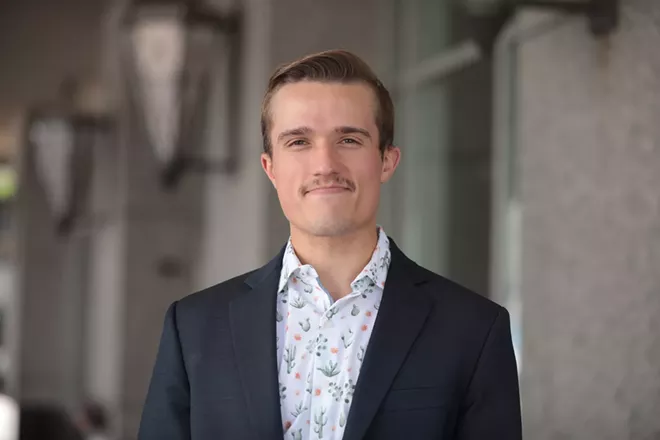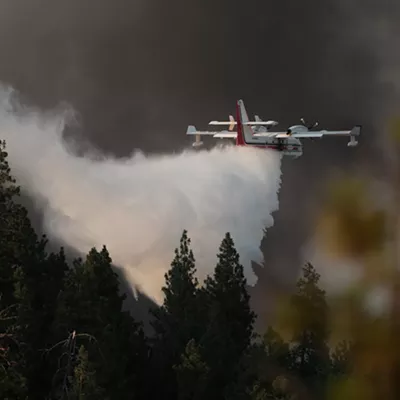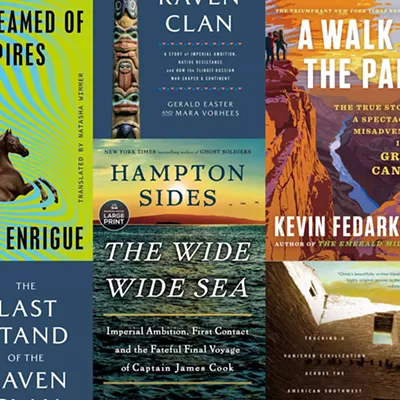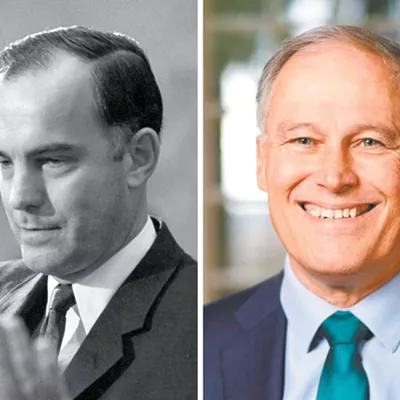
Only a few years ago, Gov. Jay Inslee sermonized that climate change could kill humanity, using terms like "existential threat" and the "11th hour" — but not anymore. Maybe he's realized if you tell people who are struggling to make rent or pay for their kid's braces that they're going to die, they will mentally check out. Either they won't believe it, or they will — but won't want to think about it.
Fortunately, the governor struck a new tone when he recently wrote that "we need to focus on messages of confidence and optimism and a can-do spirit. ... Despair is just deadly." Props, governor. This is the shift we need if we are going to unite and solve the challenge of climate change.
Last week in Salt Lake City, the American Conservation Coalition (ACC), a group of politically conservative people under 30 whose top priority is climate change, held its annual meeting. In the final session of a three-day conference, ACC's founder laid out his vision for a new environmental movement. It hit me that the left and center-right were beginning to strike a similar chord.
I was introduced to ACC six years ago when its founder, Benji Backer, then a University of Washington freshman, came to talk with me about a new organization he had founded. At the time it was more of a club. Fast forward six years to last week, and ACC has over 20,000 members on campuses across the United States, and a full-time staff of 10. ACC helped create the congressional Conservative Climate Caucus, which is now the third largest caucus in the House of Representatives.
"We have real problems, but we must help people believe we can solve them," Benji told the 300 ACC leaders. "It's time to create an environmental movement of optimism, not fear. Of pragmatism. Of solutions, not rhetoric. It's time to focus on our opportunities to improve the world."
After the final meeting, Benji explained over a celebratory beer that when we start looking at climate change as an opportunity to improve the world, we can motivate people to become involved.
That Backer and Inslee are striking a similar tone yields hope climate change can transcend partisan politics and become a challenge America rises to. But changing the tone is only half of how we will engage people; the other half is accountability. And while Inslee has moved away from fear mongering, I'm not sure he and the Democratic legislature want to embrace a results-driven strategy.
That's something many of the conservatives I met in Salt Lake City demand. They support the government spending money to address climate change, as long as funds help communities adapt — or support policies and innovations that can be scaled-up by China and India, where the need is great. Conservatives want accountability, not new rules that drive up prices without reducing greenhouse gas emissions.
Americans will sacrifice, but not for something that won't make a difference.
Unfortunately, in Washington we are getting new rules and pricing schemes that won't affect the planet's climate — and aren't models for China and India. If Washington Democrats require people to abandon natural gas in their homes and pay the highest gas prices in the United States (while neither have any affect on climate change), people will disengage, believe there's nothing we can do and land somewhere between disgruntled and pissed-off. Americans will sacrifice, but not for something that won't make a difference.
While Washington's new taxes and standards won't reduce temperatures and will increase gas prices, the revenue the state's cap-and-trade scheme generates could fund innovative projects that would reduce CO2 emissions.
Innovation could be Washington state's greatest contribution to reversing climate change. Rather than spending billions tearing down dams, we should pioneer salmon-safe hydro generation that could be used around the world. We should lead the exploration of harvesting the power of tidal currents. We should transform the Tri-Cities into Earth's center for research, development and manufacturing of modular nuclear technology. Boeing, Alaska Airlines, Washington State University and the Port of Seattle should redouble their initiative to develop commercially viable aviation biofuels. But when one looks at how the legislature recently spent nearly $600 million of new climate tax revenues, little went to supporting innovation.
In 2024 we should elect a governor and state auditor who commit to evaluating how every one of those dollars was spent and quantify how that expenditure either reduced emissions, helped a community adapt or developed a model other countries could adopt. If an expenditure can't meet quantifiable benchmarks, cut it. Demonstrating results will help people believe we can stall or reverse climate change. Creating a slush fund for pet projects and favorite constituencies will increase cynicism.
Benji Backer's new environmental movement is grounded in such pragmatism, but also in optimism. He reminded the crowd that through sheer determination, previous generations of Americans rose to meet the challenge of their time. He encouraged his generation of climate activists to equally engage, learn from past errors, and pragmatically build the future.
Unknowingly, those center-right climate activists were echoing the "optimism and a can-do spirit" that left-leaning Inslee now espouses. Both parties should seize this moment, abandon the politics of fear, ensure accountability, and unite behind a new environmentalism that motivates people to take pragmatic steps forward. ♦
Bill Bryant, who served on the Seattle Port Commission from 2008-16, ran against Jay Inslee as the Republican nominee in the 2016 governor's race. He is chairman emeritus of the company BCI, is a founding board member of the Nisqually River Foundation and was appointed by Gov. Chris Gregoire to serve on the Puget Sound Partnership's Eco-Systems Board. He lives in Winthrop, Washington.






















